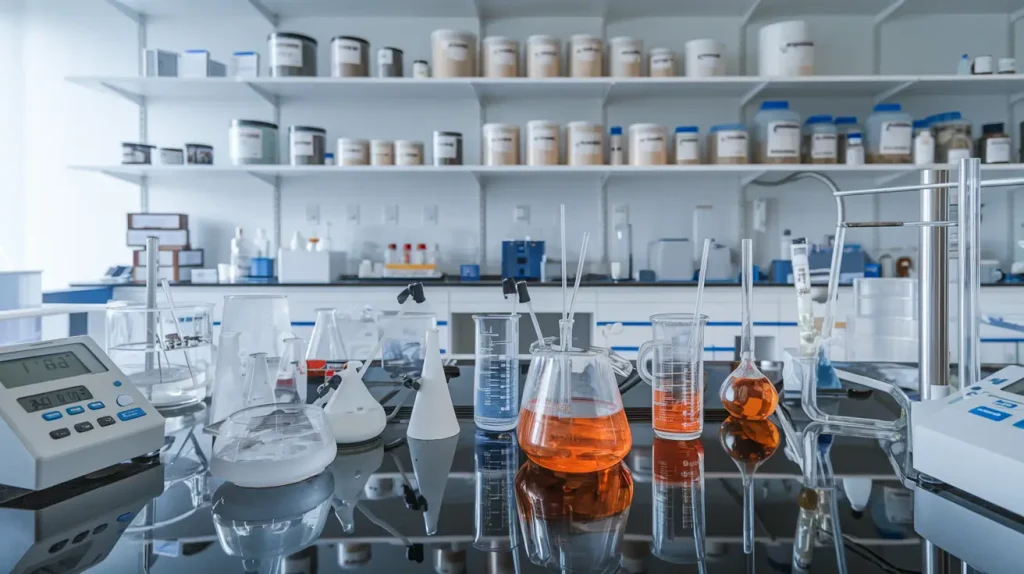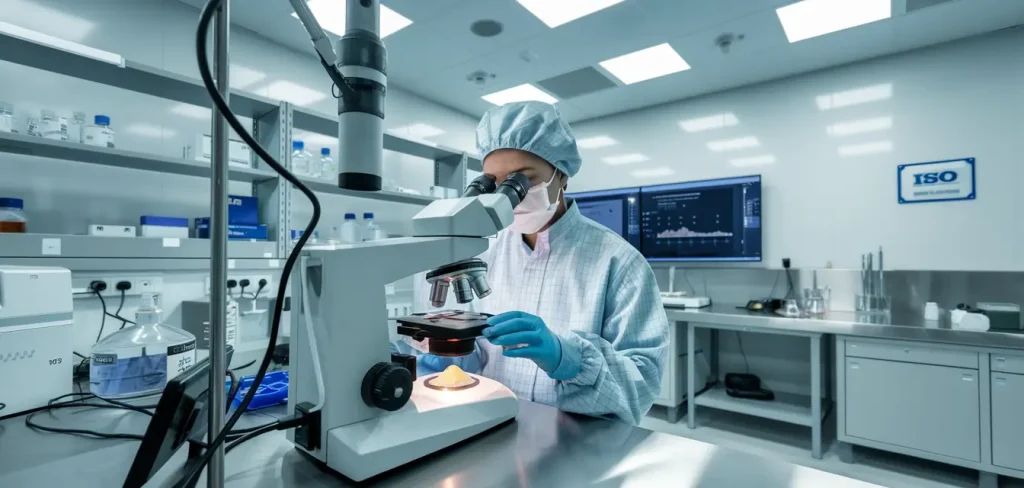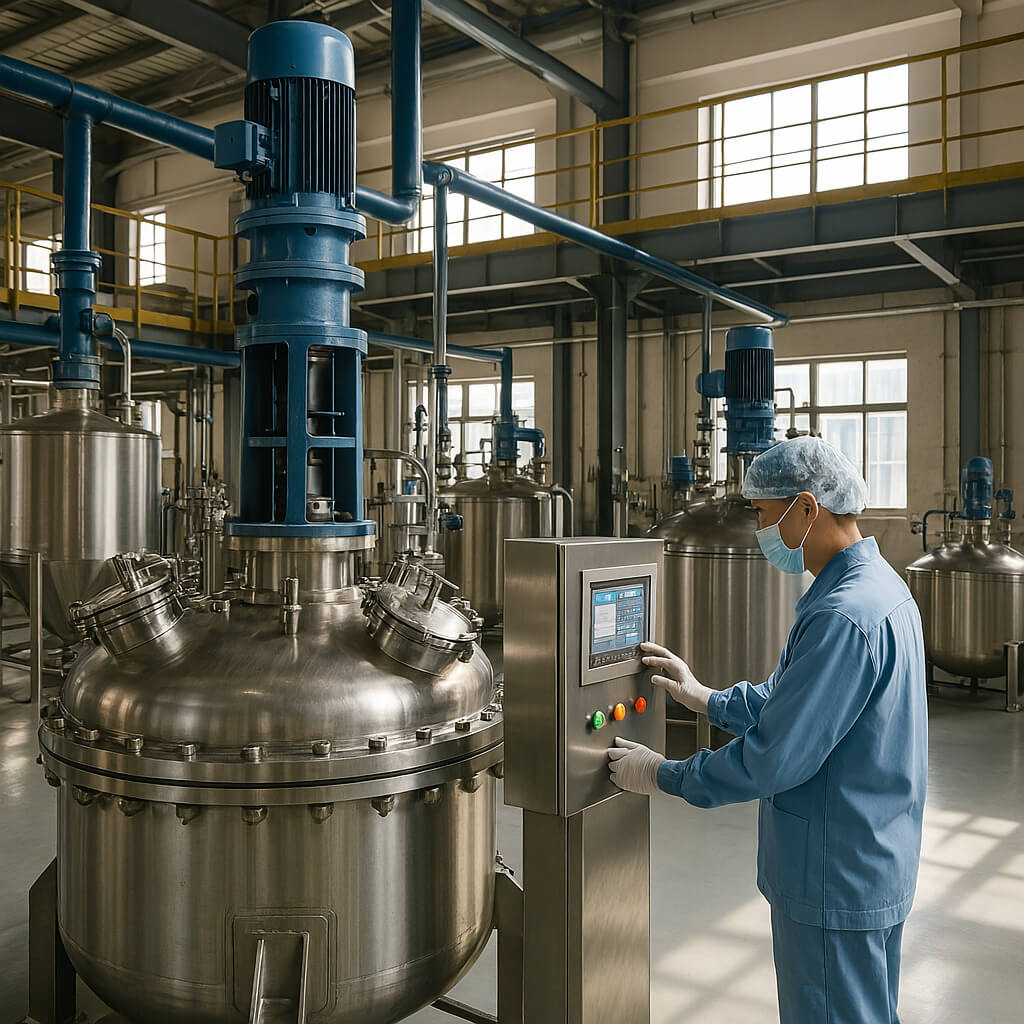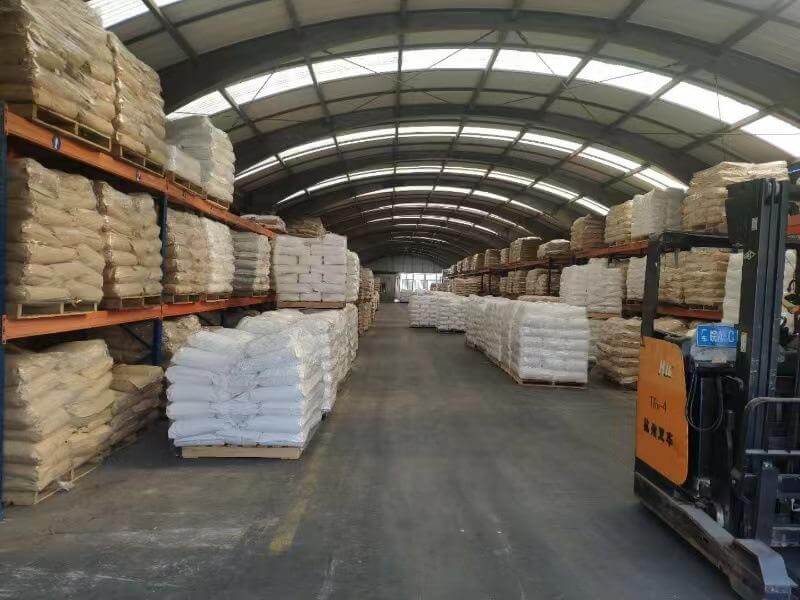Navigating international chemical regulations can be overwhelming. When sourcing HPMC from China, how can you ensure your supplier meets global compliance standards?
Chinese HPMC exporters require multiple certifications depending on application markets: ISO 9001 for quality management, pharmacopeia standards (USP/NF, EP, JP) for pharmaceutical grades, food safety certifications (FSSC 22000) for food applications, and REACH compliance for EU markets.
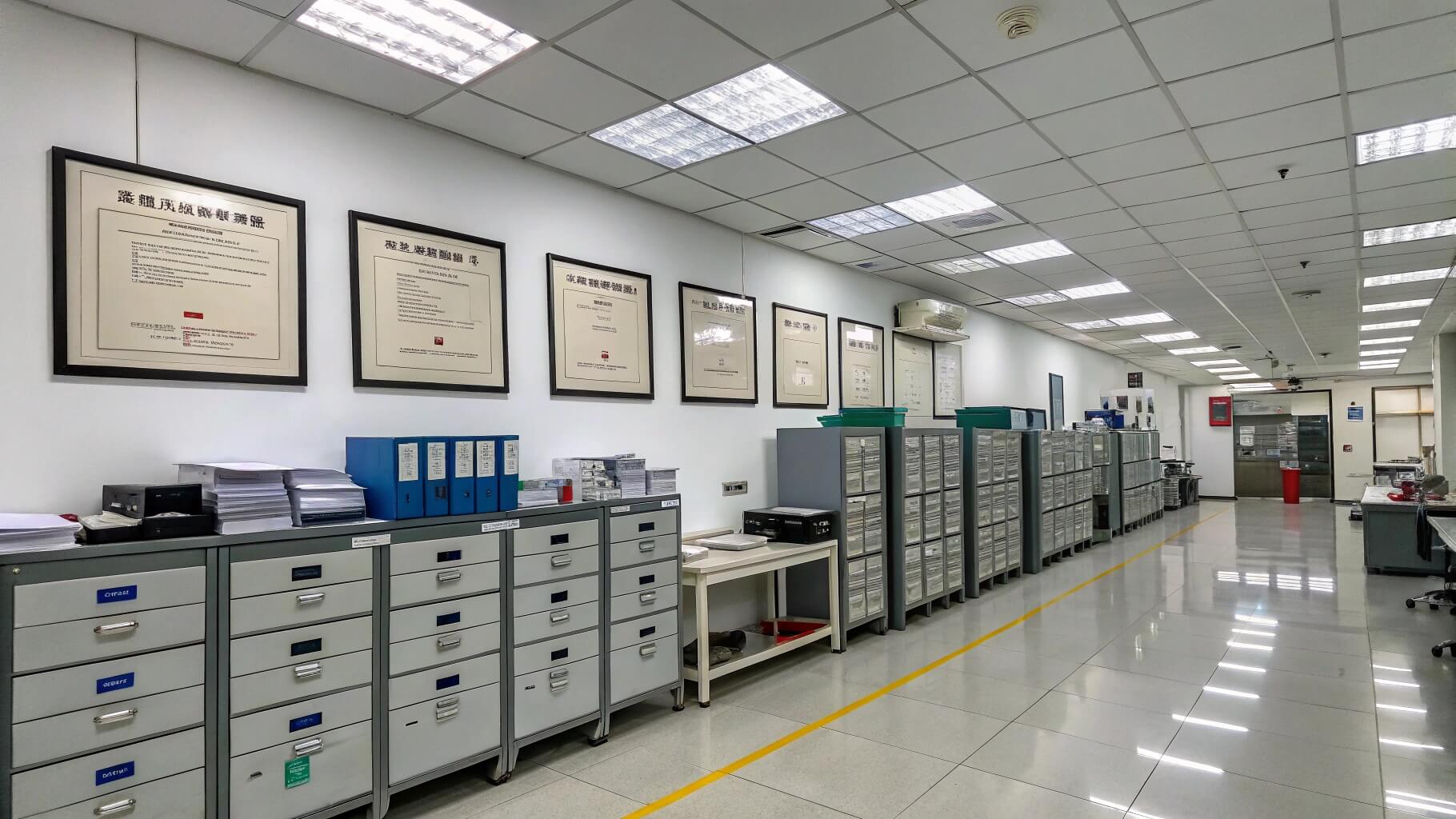
A collection of certification logos and compliance documents that Chinese HPMC manufacturers must obtain to export their products to international markets, including ISO, pharmacopeia, and food safety certifications.
Understanding these certification requirements helps procurement managers evaluate supplier qualifications and ensure regulatory compliance in destination markets.
Why do Chinese HPMC exporters need certifications?
Regulatory compliance creates market access barriers. What certification requirements must Chinese HPMC suppliers meet to export globally?
Chinese HPMC exporters require certifications to demonstrate compliance with international standards, ensure product quality, and access regulated markets. These certifications serve as third-party verification of manufacturing practices, product specifications, and regulatory compliance.
For international buyers, supplier certifications provide critical risk management tools by verifying that products meet quality and regulatory requirements before shipment. This pre-verification significantly reduces the risk of non-compliant materials entering production processes. The International Organization for Standardization emphasizes that certification provides independent confirmation of conformity to standards and regulations.
Regulatory authorities in most developed markets require specific certifications for HPMC depending on the intended application. Without proper certification, products may be rejected at customs, face import restrictions, or trigger regulatory enforcement actions. These requirements are particularly stringent for pharmaceutical and food applications where product safety directly impacts human health.
Market access often depends directly on certification status. Many pharmaceutical manufacturers, food producers, and construction material companies maintain approved supplier lists that require specific certifications as minimum qualification criteria. Without these certifications, Chinese HPMC exporters effectively cannot access premium market segments regardless of product quality or pricing.
| Application Sector | Certification Importance | Primary Certification Types |
|---|---|---|
| الصيدلة | Critical - market access dependent | Pharmacopeia, GMP, ISO |
| طعام | Critical - regulatory requirement | Food safety, ISO, Kosher/Halal |
| بناء | Important - customer requirement | ISO, product performance |
| العناية الشخصية | Important - brand protection | ISO, product safety |
| صناعي | Moderate - quality assurance | ISO, technical specifications |
What quality management certifications are essential for HPMC exporters?
Quality systems form the foundation of supplier qualification. Which quality certifications should you require from Chinese HPMC manufacturers?
Quality management certifications verify that HPMC manufacturers maintain consistent production processes, quality controls, and management systems. These certifications provide the foundation for reliable product quality and serve as prerequisites for most international markets.
ISO 9001 certification represents the most fundamental quality management requirement for HPMC exporters. This internationally recognized standard verifies that manufacturers have implemented quality management systems covering all aspects of operations, from raw material procurement through production and delivery. The International Accreditation Forum maintains a database of accredited certification bodies that issue valid ISO certifications.
For Chinese HPMC exporters, ISO 9001 certification should be issued by internationally recognized certification bodies rather than local organizations with limited recognition. Leading certification bodies include SGS, Bureau Veritas, TÜV, and Intertek, whose certifications carry greater credibility in international markets. Certification scope should specifically include HPMC production rather than general chemical manufacturing.
ISO 14001 environmental management certification has become increasingly important for HPMC exporters as international buyers emphasize sustainability and environmental compliance. This certification verifies that manufacturers have implemented systems to manage environmental impacts, comply with regulations, and pursue continuous improvement in environmental performance. While not always mandatory, this certification increasingly serves as a competitive differentiator.
For pharmaceutical-grade HPMC, additional quality certifications often apply. ISO 15378 specifically addresses primary packaging materials for medicinal products and incorporates Good Manufacturing Practice (GMP) requirements. Similarly, EXCiPACT certification specifically addresses pharmaceutical excipient GMP and GDP (Good Distribution Practice), providing specialized quality assurance for pharmaceutical applications.
| شهادة | Relevance to HPMC | Verification Approach |
|---|---|---|
| ايزو 9001 | Essential for all applications | Certificate verification, on-site audit |
| ايزو 14001 | Increasingly important for all sectors | Certificate verification, environmental review |
| ISO 15378 | Specific to pharmaceutical applications | Certificate verification, GMP assessment |
| EXCiPACT | Specialized for pharmaceutical excipients | Certificate verification, excipient-specific audit |
What pharmaceutical certifications must HPMC exporters obtain?
Pharmaceutical applications face stringent requirements. Which certifications ensure HPMC meets pharmaceutical standards?
Pharmaceutical-grade HPMC requires specialized certifications that verify compliance with pharmacopeia standards, Good Manufacturing Practices (GMP), and regulatory requirements specific to pharmaceutical excipients. These certifications are essential for accessing pharmaceutical markets and ensuring patient safety.
Pharmacopeia compliance represents the most fundamental requirement for pharmaceutical-grade HPMC. Manufacturers must demonstrate that their products meet the specifications defined in major pharmacopeias, including the United States Pharmacopeia/National Formulary (USP/NF), European Pharmacopoeia (EP), and Japanese Pharmacopoeia (JP). The United States Pharmacopeia provides verification programs specifically for pharmaceutical ingredients.
For Chinese HPMC exporters, pharmacopeia certification typically involves comprehensive testing of each production batch against pharmacopeia monographs. This testing must be performed using pharmacopeia-specified methods and often requires specialized analytical equipment and validated testing protocols. Documentation must include Certificates of Analysis (CoA) that reference specific pharmacopeia methods and acceptance criteria.
Drug Master Files (DMFs) provide another important certification mechanism for pharmaceutical-grade HPMC. These confidential documents, filed with regulatory authorities like the US FDA, contain detailed information about the manufacturing process, facilities, and controls used to produce pharmaceutical excipients. Type II DMFs specifically cover drug substances and excipients like HPMC. While not certifications in the traditional sense, DMFs facilitate pharmaceutical manufacturers' regulatory filings by providing confidential manufacturing information directly to regulatory authorities.
Good Manufacturing Practice (GMP) certification specifically for pharmaceutical excipients has evolved significantly in recent years. The IPEC-PQG GMP Guide provides excipient-specific GMP guidelines that many pharmaceutical manufacturers require their suppliers to follow. Certification against these guidelines, often through third-party audit programs like EXCiPACT or NSF/IPEC/ANSI 363, provides verification that HPMC manufacturers maintain pharmaceutical-grade production conditions.
| Pharmaceutical Certification | Market Relevance | Documentation Requirements |
|---|---|---|
| USP/NF Compliance | Essential for US market | Batch CoAs, method validation, stability data |
| EP Compliance | Essential for European market | Batch CoAs, method validation, stability data |
| JP Compliance | Essential for Japanese market | Batch CoAs, method validation, stability data |
| Drug Master Files (DMFs) | Facilitates customer regulatory filings | Comprehensive manufacturing documentation |
| EXCiPACT/NSF/IPEC GMP | Increasingly required by pharmaceutical customers | GMP documentation, audit reports |
What food-grade certifications are required for HPMC exports?
Food safety regulations vary globally. Which certifications ensure HPMC meets food application requirements?
Food-grade HPMC requires specialized certifications that verify compliance with food safety standards, regulatory requirements, and quality parameters specific to food additives. These certifications are essential for accessing food markets and ensuring consumer safety.
Food safety management system certifications form the foundation for food-grade HPMC exports. FSSC 22000 (Food Safety System Certification) has emerged as the leading global standard, combining ISO 22000 food safety management requirements with prerequisite program requirements specific to food ingredient manufacturing. The Global Food Safety Initiative recognizes FSSC 22000 as meeting its benchmark requirements, making it widely accepted across international markets.
For Chinese HPMC exporters, obtaining FSSC 22000 certification typically requires significant investments in facility design, personnel training, and quality systems. Certification must be obtained from internationally recognized certification bodies and requires annual surveillance audits with complete recertification every three years. The certification scope must specifically include HPMC production for food applications rather than general chemical manufacturing.
Regulatory approvals for food additives vary by market but generally include requirements for food-grade HPMC. In the United States, HPMC must comply with FDA regulations for food additives, specifically 21 CFR 172.874 for hydroxypropyl methylcellulose. Chinese exporters must ensure their products meet these specifications and maintain documentation demonstrating compliance. Similar regulatory approvals exist in other major markets, including the European Union (E464), Japan, and Australia/New Zealand.
Halal and Kosher certifications have become increasingly important for food-grade HPMC as these materials are used in products targeting specific religious markets. Halal certification, issued by recognized Islamic certification bodies, verifies that materials comply with Islamic dietary laws. Similarly, Kosher certification from recognized Jewish certification organizations verifies compliance with Jewish dietary laws. While not regulatory requirements, these religious certifications often serve as market access requirements for specific food segments.
| Food Certification | Market Relevance | Documentation Requirements |
|---|---|---|
| FSSC 22000 | Essential for most global food markets | Food safety manual, HACCP plans, prerequisite programs |
| FDA Compliance (21 CFR 172.874) | Mandatory for US food market | Technical specifications, test reports, declaration of compliance |
| EU Compliance (E464) | Mandatory for EU food market | Technical specifications, test reports, declaration of compliance |
| Halal Certification | Essential for Islamic markets | Process verification, ingredient review, site inspection |
| Kosher Certification | Essential for Jewish markets | Process verification, ingredient review, site inspection |
What environmental and safety certifications should HPMC exporters maintain?
Sustainability concerns influence procurement decisions. Which environmental certifications demonstrate responsible manufacturing?
Environmental and safety certifications verify that HPMC manufacturers operate responsibly regarding environmental impacts, worker safety, and chemical management. These certifications address growing sustainability concerns among international buyers and regulatory requirements in developed markets.
ISO 14001 environmental management certification provides the foundation for demonstrating environmental responsibility. This internationally recognized standard verifies that manufacturers have implemented systems to identify environmental aspects, comply with regulations, prevent pollution, and pursue continuous improvement in environmental performance. The International Organization for Standardization maintains standards for environmental management systems that apply across industries.
REACH (Registration, Evaluation, Authorization and Restriction of Chemicals) compliance has become essential for HPMC exports to the European Union. While not a certification in the traditional sense, REACH compliance requires registration of chemical substances with the European Chemicals Agency (ECHA) and demonstration of safe use throughout the supply chain. Chinese HPMC exporters typically work with EU-based Only Representatives to fulfill REACH obligations, including registration dossiers, safety data sheets, and exposure scenarios.
RoHS (Restriction of Hazardous Substances) compliance applies to HPMC used in electrical and electronic applications. This EU directive restricts the use of specific hazardous substances including lead, mercury, cadmium, hexavalent chromium, and certain flame retardants. While HPMC itself typically does not contain these substances, formal certification of compliance through test reports and declarations has become standard practice for many industrial applications.
ISO 45001 occupational health and safety certification addresses workplace safety concerns. This standard verifies that manufacturers have implemented systems to identify hazards, assess risks, and protect worker health and safety. While not always mandatory, this certification increasingly serves as a competitive differentiator and demonstrates corporate social responsibility to international buyers.
| Environmental Certification | Market Relevance | Documentation Requirements |
|---|---|---|
| ايزو 14001 | Important for all international markets | Environmental management manual, aspect/impact analysis |
| REACH Compliance | Mandatory for EU market access | Registration dossiers, safety data sheets, exposure scenarios |
| RoHS Compliance | Essential for electronic applications | Test reports, declaration of compliance |
| ISO 45001 | Increasingly important for multinational buyers | Safety management system, risk assessments |
What product-specific certifications apply to different HPMC applications?
Application requirements vary across industries. Which specialized certifications apply to specific HPMC end uses?
Product-specific certifications address the unique requirements of different HPMC applications across construction, pharmaceutical, food, personal care, and industrial sectors. These specialized certifications verify performance characteristics, safety parameters, and regulatory compliance for specific end uses.
Construction application certifications focus on performance characteristics and building code compliance. For HPMC used in tile adhesives, mortars, and plasters, CE marking under the Construction Products Regulation (CPR) has become essential for European markets. This certification verifies that products meet harmonized European standards and can legally be sold throughout the EU. The اللجنة الأوروبية للمعايير develops these harmonized standards for construction products.
For Chinese HPMC exporters targeting construction markets, product performance certifications often include testing according to standards like EN 13914 (for rendering and plastering), EN 12004 (for tile adhesives), or ANSI A118.4 (for modified dry-set cement mortars). These certifications typically involve third-party testing of HPMC performance in specific applications rather than certification of the HPMC itself.
Pharmaceutical application certifications extend beyond basic pharmacopeia compliance to include specialized verification for specific dosage forms. Drug Delivery System (DDS) certification programs verify that HPMC grades meet the specialized requirements for controlled-release formulations, including dissolution profiles, viscosity stability, and compatibility with active pharmaceutical ingredients.
Food application certifications include specialized verifications for particular food categories. For HPMC used in gluten-free products, specific certification programs verify the absence of gluten contamination throughout the manufacturing process. Similarly, allergen-free certifications verify that HPMC production avoids cross-contamination with common allergens.
| Application Sector | Specific Certification | Market Relevance |
|---|---|---|
| بناء | CE Marking (CPR) | Mandatory for EU construction market |
| بناء | ASTM C1328 Compliance | Important for US plaster applications |
| الصيدلة | Drug Master File | Essential for regulated pharmaceutical products |
| الصيدلة | Dissolution Profile Certification | Critical for controlled-release applications |
| طعام | Gluten-Free Certification | Essential for gluten-free food applications |
| طعام | Allergen-Free Certification | Important for specialized food applications |
الأسئلة الشائعة
What is HPMC certification?
HPMC certification encompasses various verification processes that confirm the material meets quality, safety, and regulatory requirements for specific applications. Rather than a single certification, HPMC requires different certifications depending on its intended use. For all applications, basic quality management certification (ISO 9001) verifies consistent manufacturing processes and quality controls. Application-specific certifications then address particular requirements: pharmaceutical grades require pharmacopeia compliance (USP/NF, EP, JP) and often GMP certification; food grades require food safety certification (FSSC 22000) and regulatory approvals; construction grades require performance certifications against relevant building standards. These certifications involve third-party verification through document review, on-site audits, and product testing.
How do I know if HPMC is food grade?
Food-grade HPMC can be identified through specific certifications and documentation that verify its suitability for food applications. Legitimate food-grade HPMC from Chinese exporters should be accompanied by: (1) Food safety management certification (FSSC 22000 or ISO 22000) verifying that the manufacturing facility maintains appropriate food safety controls; (2) Regulatory compliance documentation confirming the material meets specifications for food additives in the destination market (e.g., FDA 21 CFR 172.874 for US markets, E464 for EU markets); (3) A food-grade Certificate of Analysis showing test results for food-relevant parameters including heavy metals, residual solvents, microbiological limits, and purity; (4) Food-grade labeling that clearly identifies the material as suitable for food applications.
What is the difference between food grade and pharmaceutical grade HPMC?
Pharmaceutical-grade HPMC meets more stringent requirements than food-grade material, with key differences in several areas. Purity specifications are more demanding for pharmaceutical grades, with tighter limits on impurities, residual solvents, heavy metals, and microbial contamination. Manufacturing controls are more rigorous for pharmaceutical grades, typically requiring dedicated production facilities or equipment trains and comprehensive validation of cleaning procedures to prevent cross-contamination. Documentation requirements are substantially more extensive for pharmaceutical grades, including detailed manufacturing records, validation studies, stability data, and often Drug Master Files. Testing protocols are more comprehensive for pharmaceutical grades, with more parameters tested using pharmacopeia methods and tighter acceptance criteria.
What is the difference between industrial grade and food grade HPMC?
Industrial-grade and food-grade HPMC differ significantly in specifications, manufacturing controls, and certification requirements. Industrial grades (used in construction, paint, ceramics, etc.) have specifications focused on functional properties like viscosity, water retention, and workability rather than purity or safety parameters. These grades typically have higher acceptable limits for impurities, heavy metals, and residual solvents compared to food grades. Manufacturing controls for industrial grades focus on batch consistency and performance characteristics without the stringent contamination prevention measures required for food applications. Certification requirements for industrial grades typically include basic quality management (ISO 9001) and product performance specifications, while food grades require comprehensive food safety certification (FSSC 22000) and regulatory approvals.
خاتمة
Certification requirements for Chinese HPMC exporters create a complex compliance landscape that varies significantly by application and destination market. Understanding these requirements helps procurement managers effectively qualify suppliers and ensure regulatory compliance throughout the supply chain.
For all applications, quality management certification (ISO 9001) provides the foundation for consistent manufacturing processes and quality controls. Application-specific certifications then address particular requirements: pharmaceutical grades require pharmacopeia compliance and often GMP certification; food grades require food safety certification and regulatory approvals; construction grades require performance certifications against relevant building standards.
The certification landscape continues to evolve, with increasing emphasis on environmental sustainability, supply chain transparency, and specialized performance parameters. Leading Chinese HPMC manufacturers have recognized that comprehensive certification portfolios create competitive advantages in international markets and have made significant investments in quality systems, testing capabilities, and regulatory compliance.
Contact Morton today to discuss your specific HPMC certification requirements. Our comprehensive certification portfolio covers pharmaceutical, food, and construction applications, ensuring that your products meet all regulatory requirements in your target markets. Our regulatory affairs team can provide detailed compliance documentation tailored to your specific application needs.

